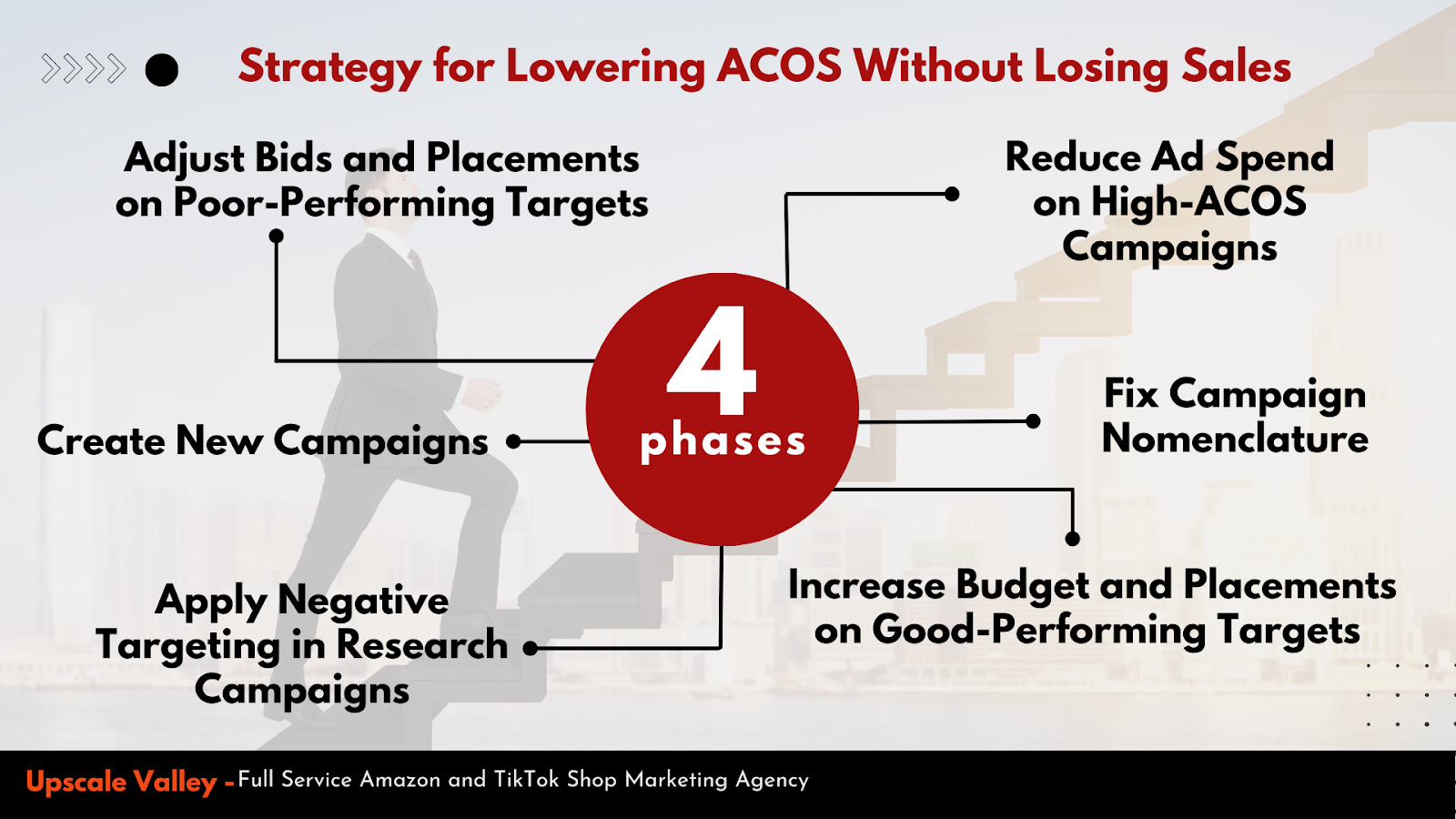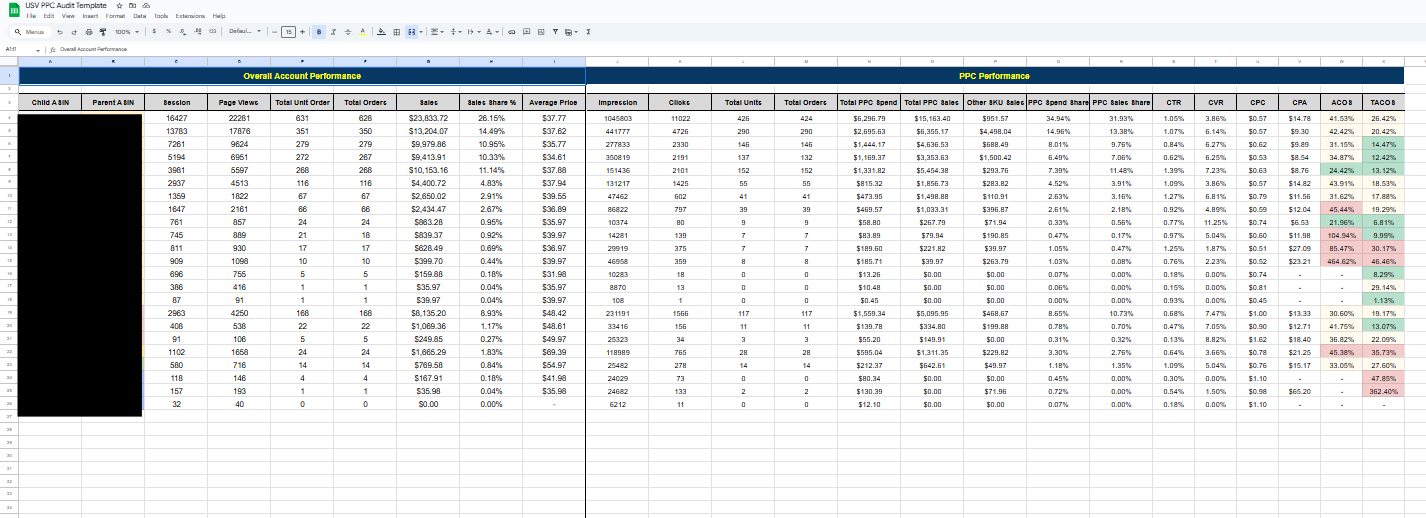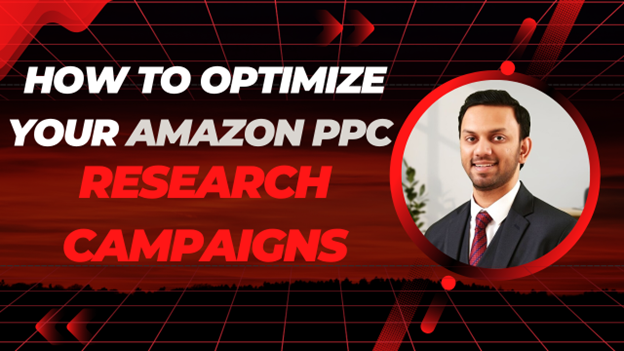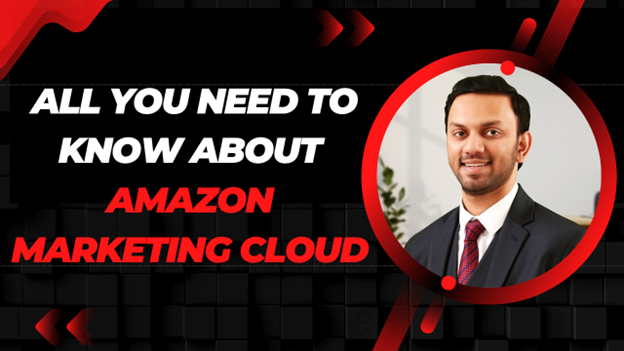Running Amazon ads is no longer as simple as turning on a few Sponsored Products campaigns and waiting to get profitable sales. The Amazon marketplace has become more competitive and the advertising platform has become more complex.
That is why many sellers on Amazon are looking for Amazon Account and PPC consultants, specialists who can manage and optimize their campaigns and create strategies designed to scale revenue while keeping costs under control. But here’s the truth: not all consultants are professional in the market, some may sound convincing but lack the deep experience required to navigate Amazon’s ever-changing ecosystem.
So how do you make sure you are hiring the right person or agency to manage your Amazon business operations?
In this guide, we will share the top 15 questions you should ask any Amazon PPC consultant before hiring them. These questions not only help you in evaluating their expertise but also reveal if their approach aligns with your brand’s long-term goals.
Table of Content
- What’s Your Experience with Amazon PPC?
- What Is Your Strategy for Lowering ACOS Without Losing Sales?
- How Do You Perform Keyword Research?
- How Do You Measure Success Beyond ACOS?
- Can You Share Case Studies or Client Results?
- What’s Your Approach to Sponsored Products vs. Sponsored Brands vs. Sponsored Display?
- How Do You Handle Campaign Structuring?
- How Often Do You Optimize Campaigns?
- How Do You Approach Seasonal Trends and Product Launches?
- How Do You Test and Scale Ads?
- Do You Integrate PPC with Organic Ranking Strategies?
- How Do You Approach Negative Keywords?
- How Do You Report Performance to Clients?
- What’s Your Long-Term PPC Strategy for My Brand?
- Do You Use Amazon Marketing Cloud?
1. What’s Your Experience with Amazon PPC?
The very first question you need to ask when partnering with any Amazon Marketing Agency for your Amazon PPC Management is about how much experience they have in Amazon Marketing and specifically in your niche-related products. Running PPC campaigns on Amazon is not the same as running ads on Google, Facebook, or TikTok. Each platform has its own rules, data models, and optimization strategies, and you need to have full up-to-date learning about Amazon and its latest updates and trends when you are aiming to start running PPC campaigns for your product.
A seasoned consultant should be able to tell you:
- How many years of practical experience they have specifically with Amazon ads and brand development.
- What types of accounts they have handled and are currently handling (private label brands, wholesale, agencies) and how many niches their clients are dominating.
- How much monthly spend they have managed, from small sellers spending $50/day to large brands spending six figures monthly.
Red Flag Answer: “I’ve been running ads on Facebook for years, and I’m just starting to work with Amazon,” or just claiming themselves as an Amazon Champion but not showing you any success stories of their clients.
What to Look For: A consultant who can provide their case studies and success stories, such as “I helped a supplements brand lower their TACOS from 40% to 22% in three months by restructuring campaigns and adding negative targeting.
2. What Is Your Strategy for Lowering ACOS Without Losing Sales?
You can also ask them about the strategy they use to lower the ACOS (Advertising Cost of Sales) without affecting the overall sales and profitability. A good consultant should have multiple approaches, such as:

A professionally experienced consultant should be able to tell you:
- The very first thing they do is reduce your ad spend from the campaigns which have ACOS more than your breakeven ACOS (except Exact Keyword Targeting Campaigns).
- The next thing they do is rearrange the nomenclature in a proper manner if the account’s nomenclature is disturbed, to do optimization in a more clear and smooth way.
- The 2nd thing they do is start doing negative targeting in your research campaigns (Auto/Broad/Phrase).
- The next optimization they usually go for is to adjust your bids or placements on your poor-performing targets for around 5 to 10%. One thing to keep in mind is that while adjusting your bids or placements, do not consider your bid; instead check the CPC. Sometimes the CPC is way lower than your applied bid. For example, you have your bids set to $1 (Down Only) and 20% TOS Placement, and you are getting a CPC of $0.85 on TOS and the ACOS is high. So you need to reduce CPC by 10 to 15%, not bid or placement by 15%. In this particular case, you need to reduce your bid by 40% so that your actual bid will be $0.60, and with 20% TOS Placement you are allowing a bid of $0.72, which is around 10–12% lower than your current CPC.
- The next thing they do is give more budget and increase placements on good-performing targets so that we can maintain overall product sales.
- The next thing they do is create new campaigns for good-performing search terms and ASINs.
Red Flag Answer: “We just reduce bids until ACOS improves.” This might lower spend but can also destroy ranking momentum and sales volume.
What to Look For: A consultant who talks about balancing ACOS with TACOS (Total Advertising Cost of Sales) without losing the ranks on top-performing search terms, meaning they consider organic ranking growth while optimizing ads.
Struggling with rising ACOS? At Upscale Valley, our PPC experts use advanced bid strategies to cut wasted spend while boosting your organic ranking. Book your free consultation today.
3. How Do You Perform Keyword Research?
Keyword research is the foundation of every Amazon PPC campaign. If a consultant does not have a clear process or is unable to explain how to shortlist potential keywords, then it's a sign of no-go and all your campaigns will always underperform, and all your spending will be wasted.
A strong consultant should use:
- Amazon Search Term Reports and Amazon Search Query Performance Report to extract all the potential search terms to target.
- Must have expert-level expertise in keyword research using Helium 10 Cerebro for reverse ASIN lookup.
- They should be familiar with a strategy to extract potential search terms from research campaigns and target those through exact campaigns.
- They should also explain how they prioritize long-tail keywords, how they split keywords by different intent, and why design-specific keywords are beneficial to target.
- How they select keywords based on Search Volume, Competitor Performing Score, CPR, Monthly Sales, and Relevancy.
Red Flag Answer: “We just target the most popular keywords.” This wastes money fast and often ignores profitable niche terms.
4. How Do You Measure Success Beyond ACOS?
The ACOS of your overall campaigns is not the only thing that defines your success on the biggest marketplace in the world. A professional Amazon PPC consultant should know about the importance of other attributes that contribute to and define any brand’s growth:
- TACOS (Total ACOS): How much are you spending on advertising from your total (Organic + Sponsored) product sales.
- CTR (Click-Through Rate): How is your CTR performing on a particular keyword as compared to the previous period.
- CVR (Conversion Rate): What is the conversion rate of your product as compared to the previous sales.
- Impression Share: What is the impression share percentage of your listing, and is it increased or decreased compared to the previous period.
- Organic Ranks: What is your organic rank on your main keywords and how well you are focused on increasing the ranks.
Red Flag Answer: “We only look at ACOS.”
What to Look For: Someone who shows how PPC impacts both paid and organic growth. A consultant who looks beyond ACOS will help you build a profitable long-term strategy, not just short-term wins.
5. Can You Share Case Studies or Client Results?
Ask your consultant to share some anonymized reports, case studies, or success stories of scaling brands on Amazon. An experienced consultant will always share their success stories or case studies to show their credibility and performance in the market.
Red Flag Answer: We do not share client data, While protecting confidentiality, they should still provide results without revealing sensitive info of their clients.
Want to see how Upscale Valley has scaled brands across multiple niches? Book your free PPC consultation and we will share with you our proud success stories for scaling multiple brands and dominating niches on Amazon.
6. What’s Your Approach to Sponsored Products vs. Sponsored Brands vs. Sponsored Display?
A good consultant should be familiar with how to make a strategy for any brand that includes all types of necessary campaigns across different match types and how to allocate budgets across different campaigns.
If you want to learn in detail about Essential Amazon PPC Campaigns Every Brand Needs to Dominate then check out our latest blog.
Amazon offers three main ad types:
- Sponsored Products: Most important and widely used ad type on Amazon for dominating placements or keywords and competitor product detail pages.
- Sponsored Brands: Great for increasing brand awareness and video placements type ads.
- Sponsored Display: Commonly used for retargeting and audience-based ads.
If you want to learn more about Sponsored Brand and Sponsored Display Ads Strategies then check our blogs on Amazon PPC Sponsored Display Ads Strategies and Everything You Need to Know About Amazon Sponsored Brands PPC Ads.
A good consultant will know when and how to use each.
Example Strategy: Use Sponsored Products for ranking, Sponsored Brands for brand lift, and Sponsored Display for retargeting warm shoppers.
7. How Do You Handle Campaign Structuring?
An experienced consultant always highlights the importance of proper campaign structuring and also adjusts the nomenclature of PPC campaigns to track campaign performance and do necessary optimizations in a more efficient and clear way.
Best practices include:
- Create or adjust Brand Defense Campaigns for both ASINs and branded keywords.
- Major share of spending should belong to single keyword targeting campaigns which are created by aiming to get ranked and dominate the keyword.
- Use specific names to separate your auto and manual campaigns to effectively track performance.
- Use specific names for competitor targeting campaigns.
- Always leave room for running research campaigns.
Red Flag Answer: “We just throw all keywords into one campaign.”
8. How Often Do You Optimize Campaigns?
Amazon PPC campaigns are not a “set it and forget it” type of thing. You must keep track of the performance of your campaigns and do necessary adjustments frequently. Our PPC experts usually do campaign optimization at least one or two times a week and track the effect of changes on a daily basis.
- Daily: Keep track of high-spending campaigns on a daily basis, especially how well they are spending their per-day budget, and adjust accordingly.
- Weekly: Do necessary adjustments for bids or placements, negative keyword targeting in your research campaigns to limit waste spend, and give more budget to good-performing campaigns for scaling purposes. Also, create new campaigns if required.
- Monthly: A large-scale optimization should be done on a monthly basis for strategy reviews and seasonal adjustments.
Red Flag Answer: “We optimize once a month.” That’s far too infrequent.
What to Look For: Consultants who monitor campaigns regularly and make proactive decisions to maximize your ROI.
9. How Do You Approach Seasonal Trends and Product Launches?
Amazon PPC campaign performance fluctuates heavily during Prime Day, Black Friday, and holiday seasons. A skilled consultant should have an effective campaign strategy for these peak seasons.
For launches, they should use aggressive keyword targeting, video ads, and ranking campaigns.
Look for a consultant who plans ahead for seasonality and can capture massive growth opportunities.
10. How Do You Test and Scale Ads?
The best consultants use multiple strategies for testing purposes.
- They might run Sponsored Display retargeting campaigns, one for views and one for purchases, and if any one performs poorly then they likely pause that and the one with good performance they might scale.
- They start exact keyword targeting campaigns for shortlisted keywords and if 4 of them perform well and one performs poorly, then they might pause or limit budgets to that one and scale the rest four campaigns based on their performance.
- They might create multiple kinds of custom Audiences using Amazon Marketing Cloud and keep retargeting the best performers.
- They might create multiple HSA and video ads and scale the best performer while pausing the poor ones.
They should also explain how they decide when to scale campaigns versus pausing losers.
11. Do You Integrate PPC with Organic Ranking Strategies?
Amazon PPC and Amazon SEO go side by side on Amazon, and both require expert-level optimization. Always remember that PPC is just used to throw traffic on your listing, then all the game of conversion depends upon how well your listing is equipped with the right keywords and images that clearly define how your product can add value to your customers’ lives and why they should choose your product over competitors’ products. PPC drives paid traffic, and when you combine the efforts of SEO, then both will build organic ranking.
Always hire consultants who align their PPC with SEO also, to create compounding growth.
Ready to use PPC not just for ads, but for boosting your organic rankings? Book your free strategy session with Upscale Valley today.
12. How Do You Approach Negative Keywords?
Negative keywords are essential to cutting wasted ad spend from your research campaigns and shifting your spending toward more potential targets. A consultant should:
- Add negatives weekly based on Search Term Reports.
- Exclude irrelevant or low-converting terms for targeting through PPC Exact Campaigns.
- Always protect campaigns from keyword cannibalization.
Red Flag Answer: “We don’t really use negatives.”
Takeaway: Smart use of negatives can save thousands in wasted spend.
13. How Do You Report Performance to Clients?
Transparency builds trust. Ask your consultant before onboarding what kind of reports you will receive and how they keep you in the loop and update you about the latest changes in strategy or any other thing.
Look for a consultant who:
- Provides a report with a clear breakdown of overall organic and PPC performance each month and develops or adjusts strategy for the coming month.
- Uses visual dashboards and charts that can show a quick picture of performance.
- Provides explanations of what actions were taken and what will be the next strategy.
Red Flag Answer: “We’ll just tell you it’s going well.”
Detailed reporting keeps you informed and ensures accountability. At Upscale Valley, you will receive a report highlighting every possible detail about the performance of your account every month.

This particular picture is just an overview of performance; there are several other sheets and tables that cover performance from each impression and click to total sales, ACOS, TACOS, CTR, CVR, orders, spend on each portfolio and campaign level, then placement level, then even on a search term or keyword level.
If you want to claim a free audit for your overall account performance, then book your free call with the team at Upscale Valley today.
14. What’s Your Long-Term PPC Strategy for My Brand?
Finally, ask how they’ll support your brand beyond the next 30 days. You can also ask them what will be their strategy for the next whole year, not the full and final plan, but what their basic plan is.
A true consultant should talk about:
- Building a sustainable growth plan. If they are experts, then they might also suggest expanding your brand on TikTok in upcoming months.
- How they’re going to use Amazon Marketing Cloud for long-term success and strategy creation for your brand.
- They might also provide full cash flow forecasting for your brand for the next 12 to 18 months.
Takeaway: Don’t settle for a consultant who only thinks short-term.
15. Do You Use Amazon Marketing Cloud?
Amazon recently announced one of the biggest updates of 2025 so far is that the AMC instance is now available for all accounts.
You can now also ask your consultant about what their expertise is in AMC and how they can leverage the power of AMC to build custom reporting and audience for the brand.
Looking for a long-term partner who understands Amazon PPC inside and out? Upscale Valley helps brands grow profitably with data-driven strategies. Schedule your free consultation now.
Final Thoughts
Hiring the right Amazon PPC consultant is not about finding the cheapest option in the market. It is about finding someone who understands your brand’s goals and uses advanced tools to extract valuable insights and has a proven process for scaling brands on Amazon.
Don’t leave your Amazon PPC strategy to chance. At Upscale Valley, we specialize in creating tailored PPC strategies that boost rankings, increase profitability, and build long-term brand presence. Book your FREE consultation today and let’s take your Amazon growth to the next level.




.avif)
.svg)


.png)
.jpg)
.svg)







